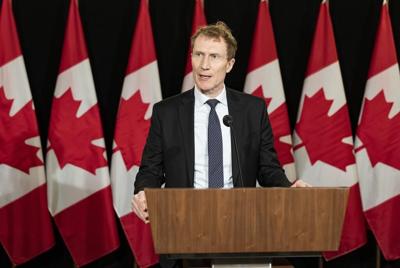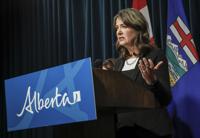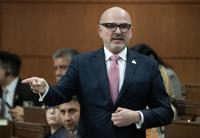OTTAWA - The Council of Ontario Universities says the newly announced cap on international student admissions is unfairly punishing responsible institutions alongside bad actors in the post-secondary sector.
Steve Orsini, president and CEO of the organization, is calling on the federal government to reverse its decision to cap the number of new study permits it issues over the next two years.
He says many universities are already in perilous financial situations and capping international student enrolment will add more strain on their budgets.
"We think a more refined, targeted approach would be better policy and not impact the good performers that rely on that funding or revenue from international students to operate," Orsini said in an interview.
Immigration Minister Marc Miller announced new limits to the international student program Monday, including a 35-per-cent reduction in the number of study permits it issues this year.
The cap comes in response to a recent surge in international students and concerns that some institutions are relying on international enrolments to boost revenues, without offering necessary housing or a quality education.
According to the council, at least 10 Ontario universities were already forecasting a combined operating deficit of $175 million this year, growing to $273 million next year.
The newly announced cap would likely increase these deficits without other measures to compensate for the revenue shortfall.
Orsini said the federal government should take a more careful approach and go after institutions that are not taking in international students responsibly.
"The federal government needs to go back to the drawing board to better target their measures to go after the (institutions) that they should be going after," Orsini said.
"Ones that have exponential growth in students, that don't provide supports, the wraparound services or housing."
Jill Dunlop, the minister in charge of Ontario colleges and universities, reacted to the cap in a statement on Tuesday.
"International students play an important role in our communities, providing meaningful benefits to Ontario and our post-secondary institutions," Dunlop said in the statement shared on social media.
"That said, we know some bad actors are taking advantage of these students with false promises of guaranteed employment, residency, and ºÚÁϳԹÏÍø citizenship. We've been engaging with the federal government on ways to crack down on these practices, like predatory recruitment."
In regard to next steps, a spokeswoman for the minister said the provincial government is developing a plan and is reviewing "all options."
Liz Tuomi, a spokeswoman for the minister, said the provincial government is developing a plan and is reviewing "all options" with regards to the federal cap on international student admissions.
"We continue to work closely with our post-secondary institutions. As we do, we have a joint responsibility to ensure the stability of the post-secondary sector and the success of its students," she said in a written statement.
Part of the challenge facing Ontario post-secondary institutions is the provincial government's freeze on tuition fees.
It has forced institutions to increase their dependence on tuition fees from international student tuition, which are considerably higher than those for ºÚÁϳԹÏÍø students.
Ontario's Progressive Conservative government introduced a 10-per-cent tuition cut in 2019 as it cancelled the former Liberal government's free tuition program for low- and middle-income students. It has frozen fees at that level since then.
A government-commissioned report released in November said Ontario should end its post-secondary tuition freeze and increase per-student funding to its universities and colleges.
The report, which was put together by an external expert panel, said ending the tuition freeze and boosting per-student funding would greatly help post-secondary institutions.
Orsini said he would like to see the provincial government implement the panel's recommendations.
"We're at a critical juncture. We're asking the province to implement those recommendations urgently."
This report by ºÚÁϳԹÏÍø was first published Jan. 23, 2024.








































